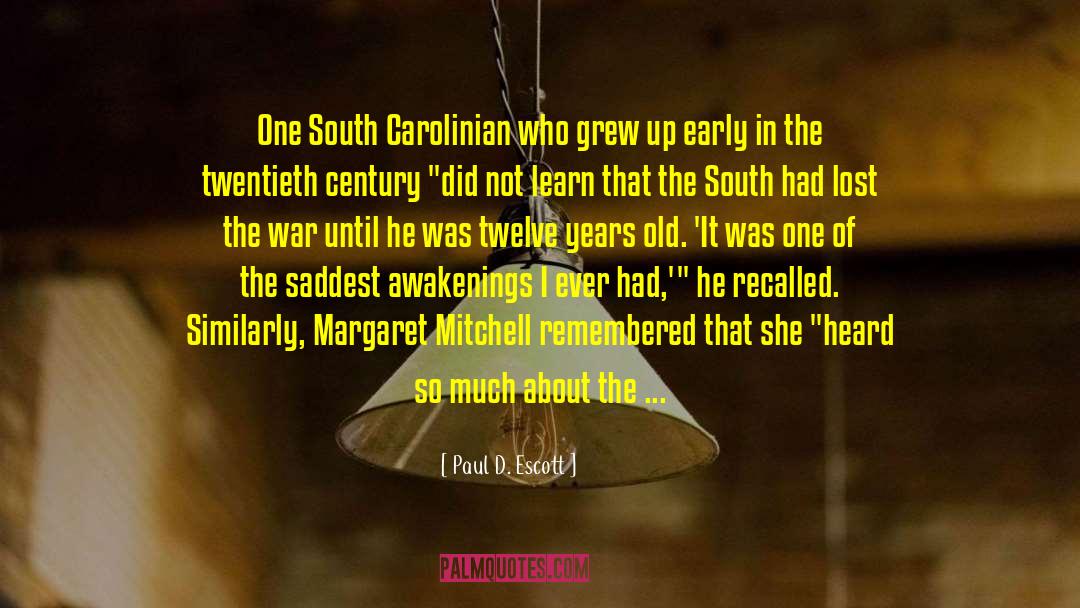Paul D. Escott Famous Quotes
Reading Paul D. Escott quotes, download and share images of famous quotes by Paul D. Escott. Righ click to see or save pictures of Paul D. Escott quotes that you can use as your wallpaper for free.
Distance from the troubled past is the product of economic and social change more than reflection or the mere passage of time, which may have little effect. To the extent that the basic circumstances of life remain unchanged, time becomes irrelevant; in fact, it may even deepen the hold of former attitudes, turning them into ancient truths. But as the foundations of social reality alter and the circumstances of daily life take on a new character, society can more easily accept hard truths and discard old controversies. It gains an ability to leave its past in the past and move into a different future.
[...] The desire of a few individuals to "overcome the past," to rise above enmity and engage a different future after a destructive war, is laudable but rarely is achievable for an entire society. Substantial numbers of people will defend old positions or insist on the validity of their grievances, and the next generation may revive propaganda or condemn efforts to "forget." Eventually, however, the world moves on, and changed realities allow acceptance of bitter truths about a troubled past. As progressively greater numbers acknowledge the past, historical wounds close, even those of bloody civil war [192 - 93].
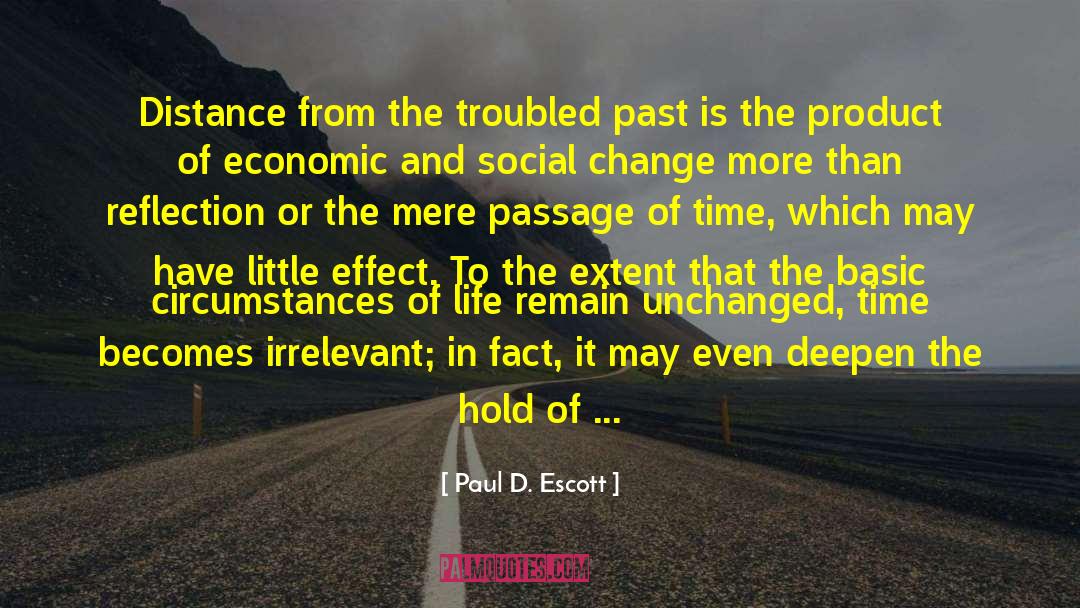
All wars leave a legacy of bitterness and hatred, but internecine conflicts create the deepest scars. There is something different about such intrafamilial conflicts. People who once were part of one national family divide, define each other as the hateful enemy, and aim for the jugular. On both sides of an internecine conflict there is a feeling of betrayal, a sense that those who were brothers or sisters have been traitorous to their commitments or to the nation [1].
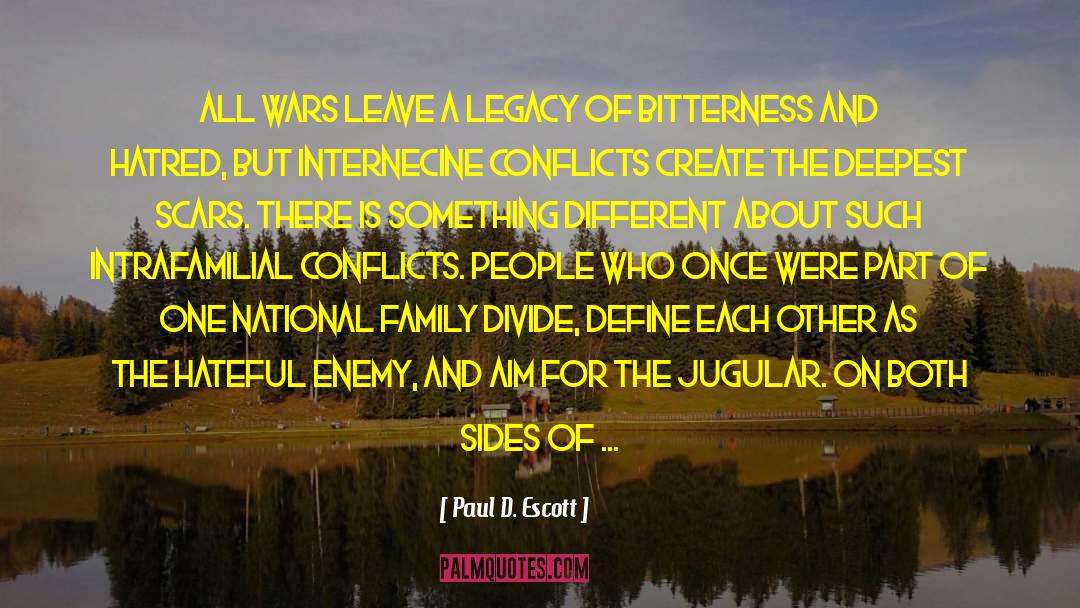
For almost one hundred years, leaders of the white South managed to freeze race relations and racial ideology in something close to the Confederate pattern, thus demonstrating that the passage of time by itself does not erase a conflicted past. Elite southern men and women created an ideology of the Lost Cause that wrapped antebellum society, the Confederacy, Reconstruction, and postwar racism in the mantle of a protective, laudatory myth. The Lost Cause portrayed the white South as cultured, chivalrous, and superior while making the North into the aggressor - crude, unprincipled, and vindictive.
[...] Even after 1900 the Lost Cause ideology continued to gain strength under the leadership of a new generation, until most southern whites came to believe that their history and the myth were identical [75 - 76].
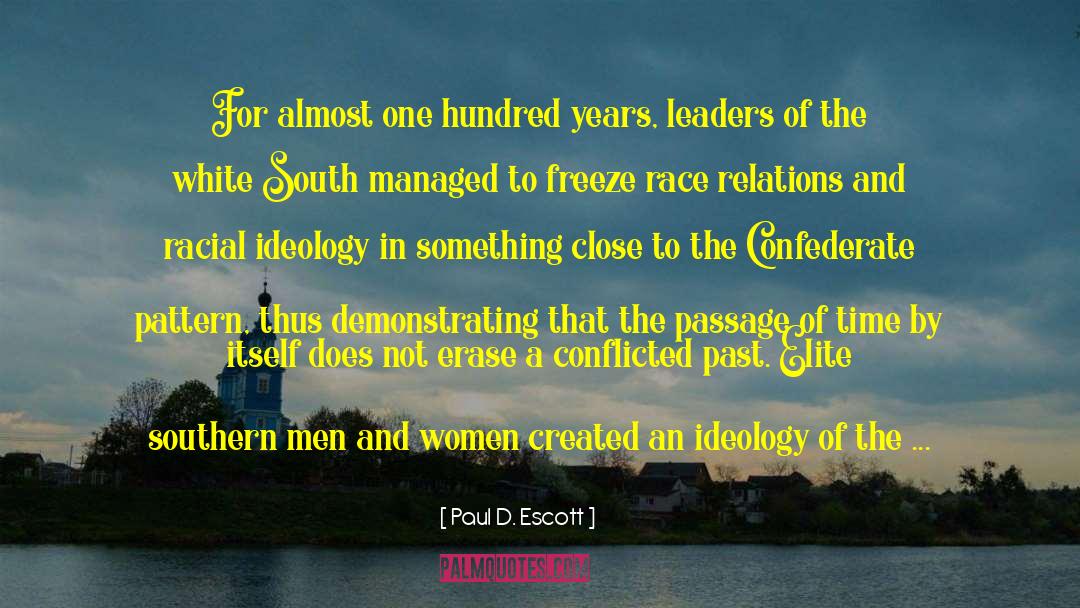
On the Republican side, the emotional bonds of family launched a major social organization led by nietos, the Association for the Recovery of Historical Memory. Late in 2000 Emilio Silva and Santiago Macías began a personal search for the unmarked graves of their Republican ancestors.
[...] Descendants of executed Republicans told a journalist that "without the body, the pain never ceases." "Never," she reported, "have they spoken of vengeance, of revenge, or of anything that resembles that. In an exhumation, they never raise their eyes from the ground. They are not thinking of reopening wounds, but of closing, for once, their own." This journalist, Natalia Junquera, also quoted a distinguished professor of psychiatry who said, "The hatred dies, it is extinguished, but the necessity of putting a name to the dead, of honoring them, no. There always comes a moment in which one has to put an end to this interminable trauma." [63]
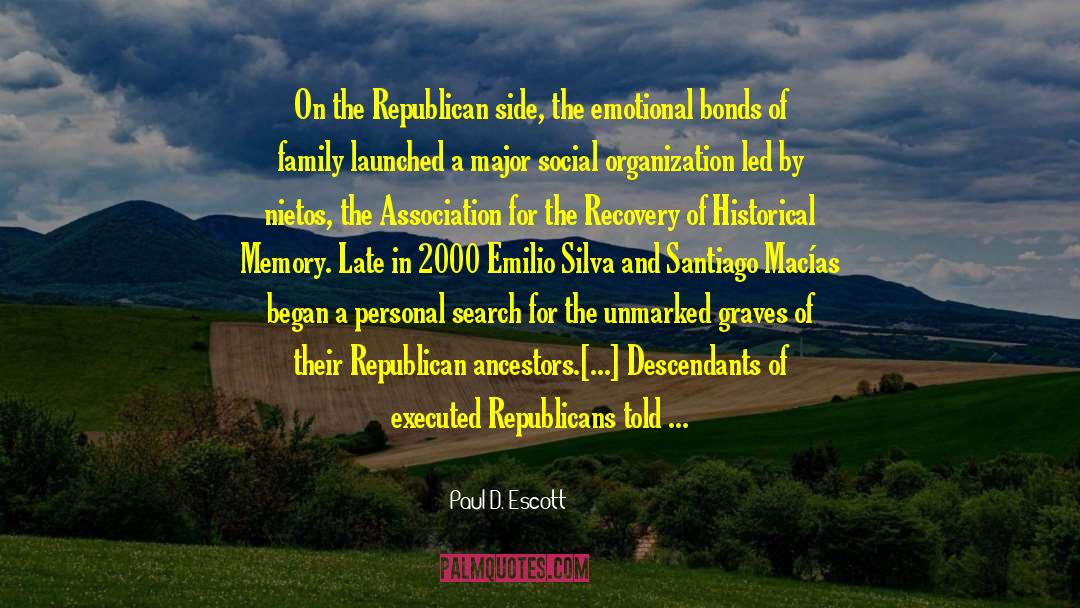
War cannot eliminate differing ideas and viewpoints, and partisans of the defeated side do not disappear. Though subjugated, they become a sizable political constituency in the postwar period. A dictator may be able to repress them, and in democracies a numerical majority may outvote them, but neither can change their thoughts. Since civil wars are, by nature, deep and fundamental conflicts, the competition between the views that led to war is likely to resurface. The defeated side may be chastened or subdued, but its values and ways of seeing the world reappear, in some form, in politics [107].
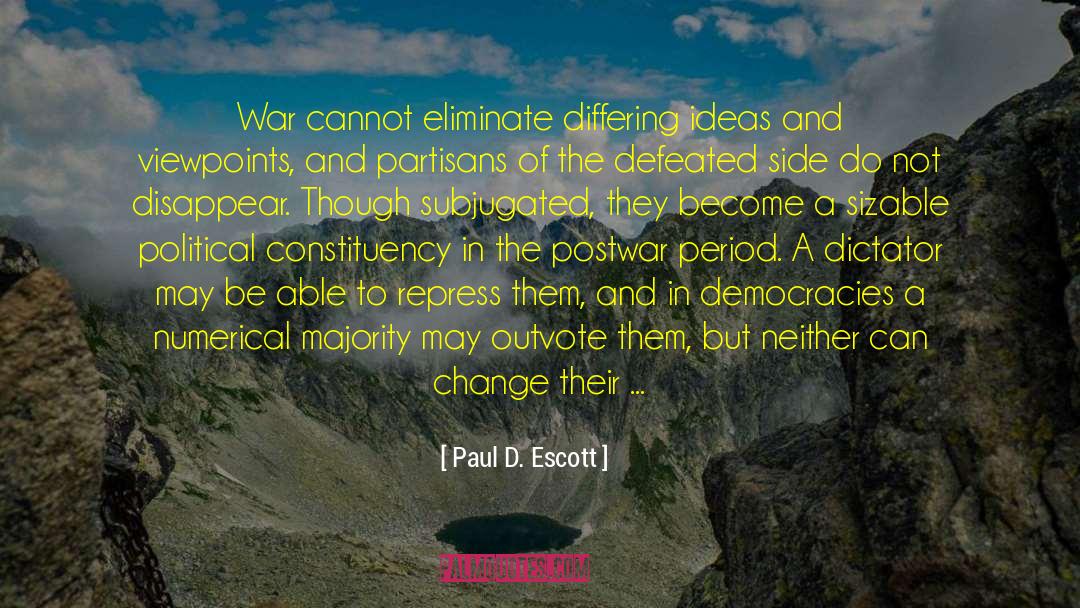
What southern whites further sought, and in a sense demanded, was respect. This the North provided after 1876 in paeans to the courage and dedication of soldiers on both sides. Resentment of northern power, the war's destruction, and Reconstruction continued to be strong in the South, and the work of white-supremacist politicians, army veterans, and southern women turned that resentment into a long-lasting ideology of the Lost Cause. Northerners, for their part, congratulated themselves on winning the war and freeing the slaves; they also took pleasure in feeling superior to the South for many generations, while industrialization, urbanization, immigration, and other social changes diverted much of their attention from wartime issues [184].
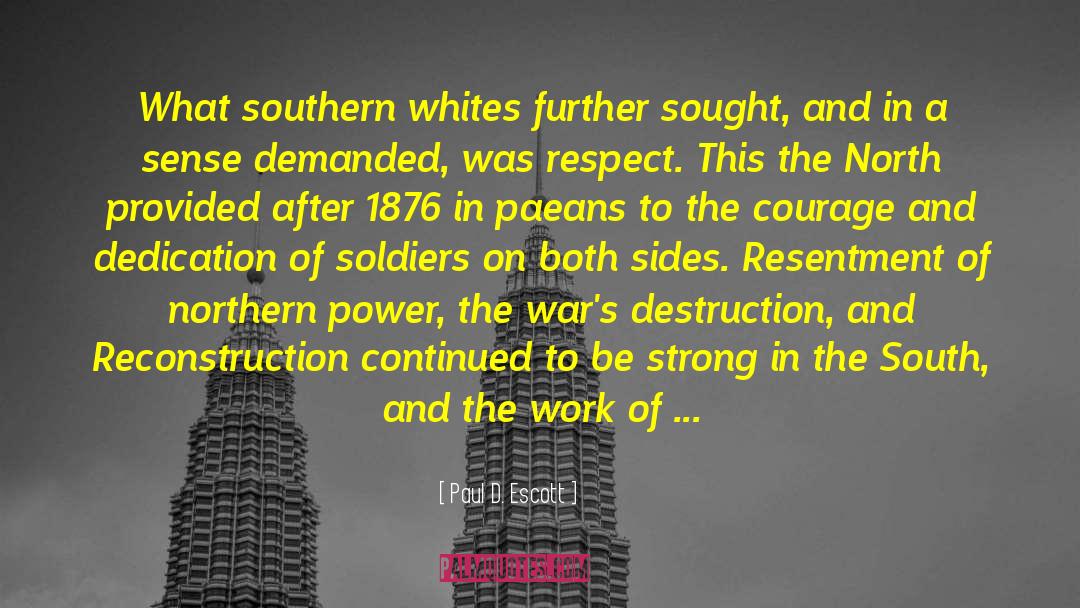
One South Carolinian who grew up early in the twentieth century "did not learn that the South had lost the war until he was twelve years old. 'It was one of the saddest awakenings I ever had,'" he recalled. Similarly, Margaret Mitchell remembered that she "heard so much about the fighting and hard times after the war that I firmly believed Mother and Father had been through it all instead of being born long afterward." [141 - 42]
